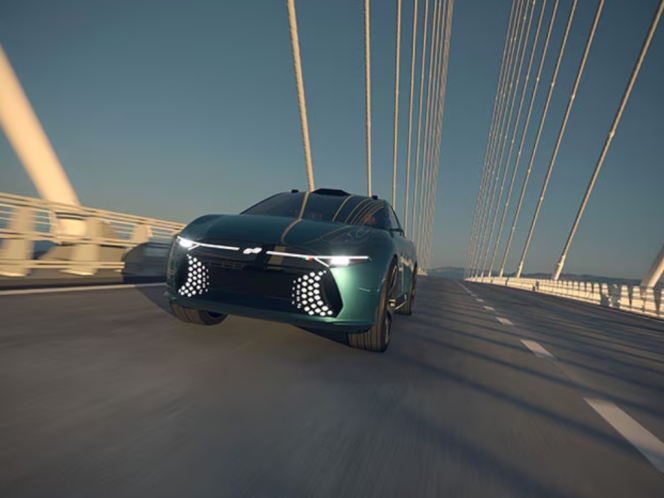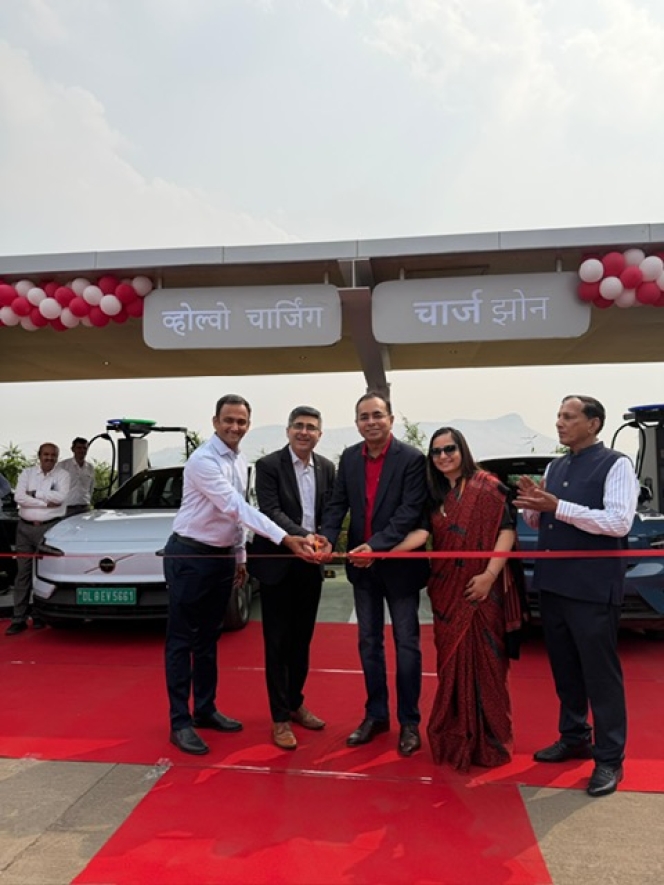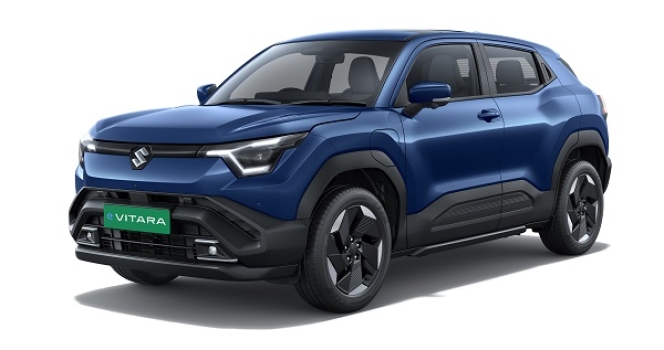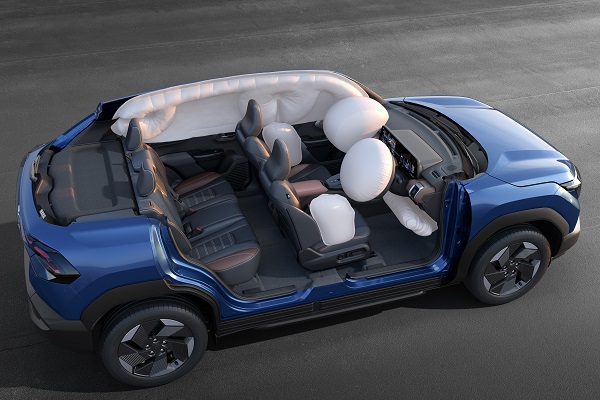Rare Earth Metal Demand In India To Reach USD 62 Million By 2030: Report
- By MT Bureau
- June 30, 2025

India is embarking on an ambitious journey to become a dominant force in the global rare earth metals (REMs) market, with a significant seven-year initiative (2025-2032) aimed at bolstering its domestic mining, refining and magnet production capabilities. This strategic pivot comes as the world increasingly relies on these 17 chemical elements, which include the 15 lanthanides along with scandium and yttrium, for cutting-edge technologies that drive electric vehicles (EVs), wind turbines, smartphones and defence systems.
A recent report by Coherent Market Insights stated that despite possessing the world's fifth-largest rare earth element reserves, estimated at an impressive 6.9 million metric tonnes, India has historically been heavily reliant on imports of rare earth magnets. However, the landscape is rapidly changing. The Indian rare earth market, valued at approximately USD 40 million in 2024, is projected to soar to USD 62.0 million by 2030, growing at a compound annual growth rate (CAGR) of around 8 percent starting in 2025.
A key aspect of this initiative involves IREL (India) Ltd., a public sector enterprise, which is increasing its neodymium output. Additionally, new magnet manufacturing plants are being established in Visakhapatnam and other industrial centres. To further secure its supply chain, India has temporarily paused some exports to prioritise domestic needs and has announced significant public-private partnerships for advanced processing facilities. The nation is also actively forging international partnerships with countries in Africa and Central Asia to secure upstream supplies.
This move by India is particularly pertinent given the global concentration of rare earth supply. As of 2023, China is the dominant player, responsible for a staggering 65-69% of total rare earth output and nearly 90 percent of the world's rare earth element processing. China's recent export restrictions on gallium and germanium in 2023, in response to chip sanctions, underscored its willingness to leverage critical mineral supply chains for geopolitical influence. Such actions have accelerated efforts by the U.S., EU, and Japan to diversify their sources.
The global market for rare earth metals is projected to be worth nearly USD 6 billion by 2025, with an anticipated CAGR of 6.4 percent from 2025 to 2032, ultimately reaching around USD 9.3 billion. This growth is primarily fuelled by the shift towards clean energy and the surging demand in the electronics and EV sectors. Neodymium, a key component in permanent magnets used for EV motors and wind turbines, stands out as the most commonly used rare earth metal, holding about 38.1 percent of the market share in 2025.
India's strong emphasis on supply chain resilience, innovation, and environmental sustainability aims to position it as a key player in the global rare earth materials value chain over the next decade.
Mohit Shrivastava, AVP Research, Coherent Market Insights, said, “Rare earth metals are quickly becoming the backbone of both the clean tech and defence sectors. While China currently holds a strong grip on the supply, India has a unique opportunity to shake things up with its abundant reserves and fresh strategic plans. Transitioning from being a mere importer to an active player in the value chain will depend on enhancing refining capabilities, fostering public-private partnerships and navigating geopolitical challenges. Over the next ten years, if India invests wisely in rare earth metals infrastructure, it could emerge as a key regional processing hub – boosting domestic manufacturing and strengthening global supply chain resilience."
OPmobility Secures Contract To Supply 1 Million Battery Packs For Hybrid Vehicles In North America
- By MT Bureau
- February 20, 2026

French automotive supplier OPmobility has been awarded a contract to supply a global Original Equipment Manufacturer (OEM) with 350V battery packs for future Hybrid Electric Vehicle (HEV) models in North America. The agreement stipulates the delivery of over 1 million battery packs over the duration of the contract.
This award marks the expansion of OPmobility’s electrification business into the passenger car segment. Previously, the company’s battery activities focused on heavy-duty mobility, including buses, trucks and trains.
The battery packs will utilise Nickel Manganese Cobalt (NMC) cell technology. OPmobility will be responsible for the engineering and delivery of the complete system, comprising: the battery case, battery cells and the Battery Management System (BMS).
To fulfil the order, the Group will extend its existing production facility in Anderson, United States.
The contract aligns with the trend toward hybridisation in the automotive industry. OPmobility currently supplies both pressurised fuel tanks and battery packs, allowing for the optimisation of energy storage across Hybrid Electric (HEV), Plug-in Hybrid Electric (PHEV) and Extended Range Electric Vehicles (EREV).
Felicie Burelle, Chief Executive Officer, OPmobility, said, "This major award reflects the trust placed in OPmobility by one of the world’s leading automotive manufacturers and key customer of the Group, and our unique and differentiating positioning to address the growing hybrid market with a competitive edge. With this contract, we strengthen the product offering of our powertrain activity with a new strategic growth lever. This is fully in line with our technological and geographical diversification strategy for all types of mobility.”
Volvo Car India And ChargeZone Launch Ultra-Fast Charging Station Near Igatpuri
- By MT Bureau
- February 19, 2026

Swedish luxury car brand Volvo Car India and ChargeZone have inaugurated an ultra-fast electric vehicle (EV) charging station on the Mumbai-Nashik Highway. The facility is located at Food Hills near Igatpuri and features a 360kW power unit equipped with two dynamic load-balancing dispensers.
This marks the first installation between the partners as part of a 2025 Memorandum of Understanding aimed at developing a charging network across national corridors. The partners intend to add further stations throughout 2026.
The EV charging station utilises an intelligent configuration for power distribution. Dynamic load balancing allows the unit to adjust power output between the two dispensers based on vehicle requirements, which reduces waiting times.
The charger can be accessed through app-based navigation and payment systems. It features dedicated bays for Volvo electric vehicles.
Jyoti Malhotra, MD, Volvo Car India, said, "As a legacy brand, Volvo Cars is committed to driving the transition towards sustainable mobility, and this partnership with ChargeZone is a testament to that vision. Together, we are ensuring that our customers not only enjoy the luxury and performance of Volvo EVs but also have access to a dependable and hassle-free charging infrastructure. The new 360kW station on the Mumbai-Nashik highway is the first step in delivering a world-class charging experience across India."
Kartikey Hariyani, Founder & CEO, ChargeZone, added, “The launch of our first co-branded 360 kW ultra-fast charging station with Volvo Car India represents an important milestone in building a premium, future ready charging network for the country. The Mumbai Nashik hub showcases our focus on high speed, technology enabled infrastructure supported by intelligent features such as dynamic power loading that significantly improve the customer experience. As EV adoption accelerates, our priority is to ensure that long-distance travel becomes fast, predictable and seamless. We look forward to supporting India’s shift toward a cleaner and more sustainable mobility landscape.”
Maruti Suzuki e VITARA Deliveries Commence With Advanced Safety And Flexible Ownership
- By MT Bureau
- February 17, 2026

Maruti Suzuki India Limited has officially commenced deliveries of its first all-electric offering, the e VITARA, heralding a significant advancement in the nation's transition to sustainable transportation. The company has introduced a range of innovative ownership schemes designed to make electric vehicles more financially accessible. Chief among these is the Battery-as-a-Service (BaaS) model, a dual-loan product that removes the substantial upfront cost of the battery, with the vehicle priced from INR 1,099,000 plus a usage-based battery rental of INR 3.99 per kilometre. Complementing this is the ‘e Flex’ scheme, which allows customers to upgrade to the e VITARA while maintaining an EMI similar to their existing car. To further enhance customer confidence, Maruti Suzuki is offering assured buyback plans, guaranteeing up to 60 percent of the vehicle's value after three years or 45,000 kilometres and 50 percent after four years or 60,000 kilometres.
The e VITARA is engineered for a carefree ownership experience, backed by comprehensive warranty coverage. It is available with two battery pack options, 61kWh and 49kWh (with a claimed driving range of up to 543 kilometres, both of which come with an industry-standard warranty of eight years or up to 160,000 kilometres. The vehicle itself carries a standard three-year warranty, with the option to extend coverage up to eight years on a payable basis.

In terms of safety and technology, the e VITARA is equipped with advanced features as standard. It incorporates Level 2 Advanced Driver Assistance Systems (ADAS), which include functionalities like Adaptive Cruise Control, Lane Keep Assist and Automatic Emergency Braking. Passive safety is addressed with seven airbags, including a driver-side knee airbag, as standard equipment. The vehicle is built on the HEARTECT-e platform, which utilises over 60 percent high-tensile and ultra-high-tensile strength steel and features an advanced battery protection system. This robust construction has helped the e VITARA achieve a comprehensive five-star safety rating from Bharat NCAP. The driving experience is further enhanced by the next-generation Suzuki Connect telematics system, which offers over 60 connected features. Customers can book the e VITARA at any NEXA showroom or through the official website with an initial payment of INR 21,000.
Partho Banerjee, Senior Executive Officer, Marketing and Sales, Maruti Suzuki India Limited, said, “Maruti Suzuki’s EV strategy has been developed to ensure that the e VITARA becomes the primary EV choice for customers. The e VITARA offers a commendable driving range of over 543 km, supported by ‘e for me’ charging ecosystem that mirrors the reliability our customers have trusted for decades. With over 1,500 EV-ready service centres, specially trained NEXA EV relationship managers and dedicated charging managers, the e VITARA offers complete peace-of-mind. We are also introducing attractive flexible ownership plans with BaaS, alongside exclusive benefits for early adopters that make the e VITARA an irresistible proposition.”
Exponent Energy Launches Exponent One To Unlock EV Financing With AI-Driven Platform
- By MT Bureau
- February 17, 2026
Bengaluru-based energy technology company Exponent Energy has unveiled Exponent One, a comprehensive fintech and asset management initiative designed to overcome a significant obstacle in commercial electric vehicle adoption: the challenge of securing practical and accessible financing. This new venture will be led by Sandeep Divakaran, an experienced professional in financing and mobility who joins as Co-founder and Chief Executive Officer.
Exponent Energy has established a comprehensive energy ecosystem for commercial EVs by tackling critical issues such as rapid charging, dependable battery performance and consistent operational uptime. This work has yielded deep, real-world energy intelligence within the commercial mobility sector. Although EV technology has progressed considerably, widespread adoption remains limited by financing hurdles. Exponent One directly confronts this issue with an advanced underwriting and asset management platform developed specifically for commercial EVs, drawing on the aforementioned energy insights. The primary goal is to achieve financing parity with internal combustion engine vehicles by providing flexible financial products and mitigating risk through assurances and buyback programmes.
By collaborating with established financial institutions, the new venture seeks to enable large-scale EV financing for commercial operators. Its focus will be exclusively on commercial electric vehicles, encompassing three-wheelers, light commercial vehicles, four-wheelers, buses and trucks. Support will extend to both individual driver-owners and fleet operators, covering the entire ownership journey from initial acquisition through lifecycle management to eventual upgrades. Leveraging Exponent’s energy intelligence, the platform employs an AI-driven adaptive financing model that facilitates access to livelihoods. It also integrates embedded insurance to protect against health and asset-related difficulties, while guaranteed buybacks help cultivate a robust secondary market, offering crucial reassurance to vehicle owners and financial partners. Additional features like savings options, supplementary loans and upgrade paths are intended to support drivers in their professional growth.
To accelerate its early deployment and broaden its footprint in key commercial EV centers, Exponent One has secured USD 2 million in pre-seed investment from AdvantEdge Founders, aiming to deliver its adaptive financing solutions to a greater number of driver-owners.
Sandeep said, “Commercial Vehicle driver-owners operate real-world businesses with daily variable earnings and limited buffers, yet lending models are still run on personal credit rails, with fixed monthly assumptions (EMIs). This rigid approach, focuses on only output metrics of timely payments, and hence fails the driver and leads to the ecosystem viewing commercial EV financing as risky. At Exponent One, we believe in something fundamental: if the driver-owner fails, the system fails. Our vision is to enable sustainable micro-entrepreneurship in electric mobility by building financing that adapts to real world earnings and not monthly averages, manages asset risk, provides buffers and gives drivers the confidence to switch and grow with EVs. Our adaptive lending model focuses on input metrics – asset quality, charging patterns, energy consumption – giving us the ability to differentiate between bad luck and bad intent and help support driver-owners through their circle of life.”
Arun Vinayak, Founder and CEO, Exponent Energy, said, “Energy in EVs is an upfront capex problem, hence viable-financing products are needed to transform this higher capex to meaningful opex benefits to the driver-owners. Electric Commercial Vehicles are fundamentally energy assets. Our ability to influence battery life and manage them on a daily basis with real-time energy data gives us an edge in understanding these assets better and in knowing their residual value. EVs are digital, earnings are digital and the energy stack with Exponent is digital, and all these input metrics, layered with innovations in AI tech, enhances our ability to contextually underwrite and support the driver-owners through their circle of life. This is a first of its kind partnership, with energy and financing coming together to provide integrated adaptive finance and asset management solutions. We’re excited to have Sandeep lead this effort to build the financial layer needed to address the commercial EV financing gap. Together, Exponent Energy will power the assets and Exponent One will power the driver-owner.”
Kunal Khattar, Founder, AdvantEdge Founders, said, “Commercial EV scale in India isn't just a technology challenge; it's a data and capital challenge. Lenders must understand how these assets actually earn and age to unlock true scale. At AdvantEdge, we’re backing Exponent One because they’ve replaced ICE-era assumptions with real-time operational intelligence, aligning financing with daily earnings and long-term asset performance. By building a durable financial layer tailored to the EV ownership lifecycle, they are addressing the core risk mismatches that have held this industry back. We believe this is the missing piece that will finally move electric fleets from pilot to mass adoption.”






Comments (0)
ADD COMMENT